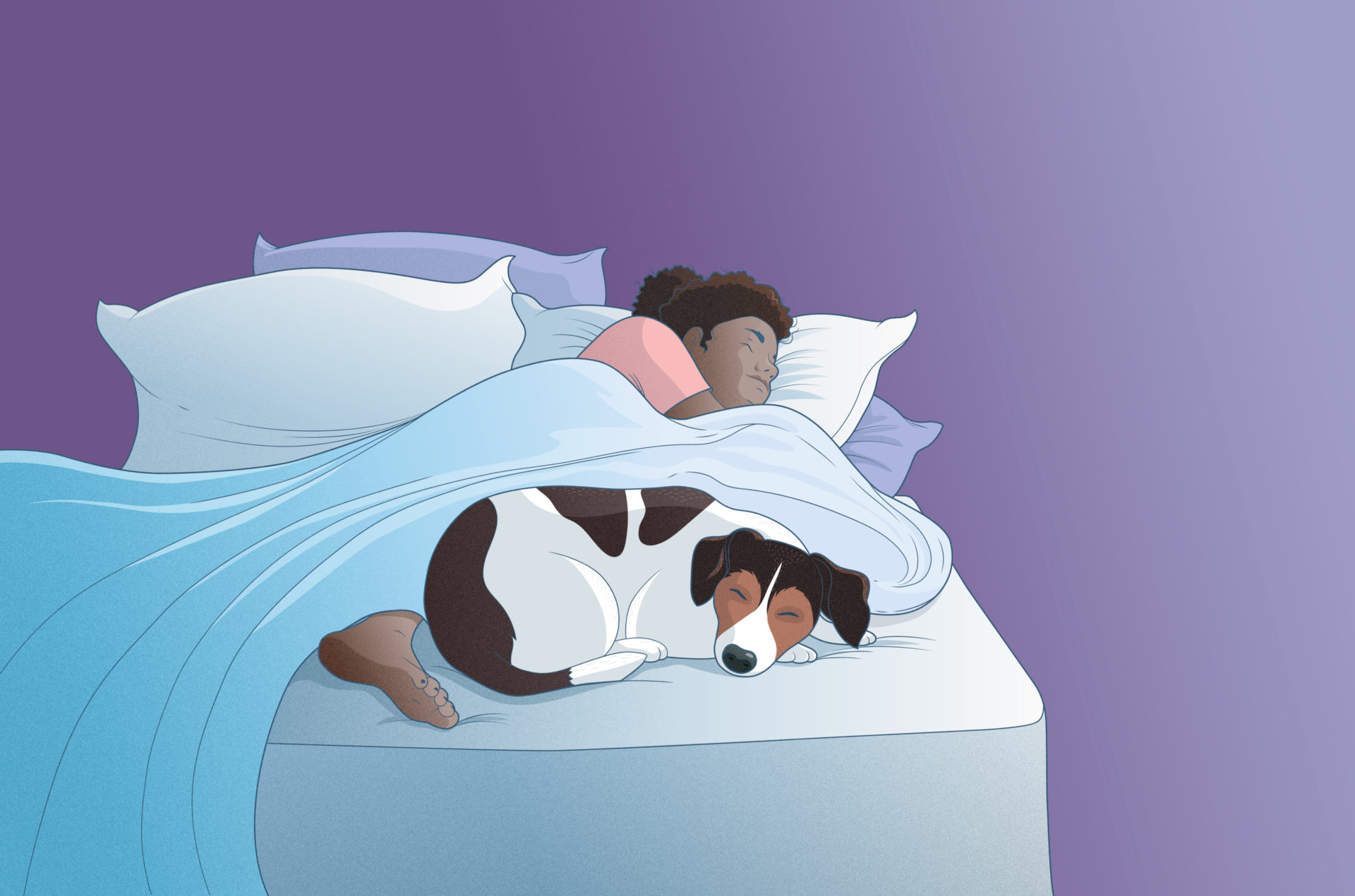Why I wouldn’t have it any other way.
When Ben, a Danish-Swedish farm dog, became part of my life, he was 3 months old and smaller than a loaf of bread. After a few weeks of house-training chaos, we settled into a routine – and I was once again able to enjoy a full night’s sleep. Not alone in bed, but together with Ben. And it’s been that way ever since.
Always by your side. But even in bed?
A dog brings purpose, warmth and unconditional love. Releasing “feel good” hormones in you with every snuggle and gentle caress. You feed him. Take walks together that you might otherwise never have taken. It’s a special bond that gets stronger with every eye contact. And when you get home after a rough day, you can always rely on a tail-wagging welcome to evaporate all stress at the door.
Canine healing power is undisputed. And the benefits of sharing life with a furry, four-legged companion are well documented. Especially for people living alone and the elderly. But sharing your bed, too? Is that really a good idea?
Well, yes – as long as it doesn’t compromise the quality of your sleep. Some people even sleep better together with their dog. A study published in the journal Mayo Clinic Proceedings examined the effect of dogs on sleep efficiency. Results show that although sharing a bed with a dog could mean some sleep disturbance, the effects were often negligible. The findings support an earlier study that indicated more than twice as many people say their dog helps them sleep than disrupts sleep.
Not for everybody – or every dog
Of course, sleeping with a dog does not work for everybody. It depends on the dog’s size (and your bed size), personality and temperament, for example. Share the bed with a large dog and you might wake up every morning on the edge clinging to the sheets. Some small dogs may start out curled up but slowly stretch out to cover a meter of the bed – and rarely lengthwise. And tiny dogs might subconsciously keep you from adjusting your position during sleep in fear of rolling over them. Some dogs toss and turn a lot. Others are easily startled or bark at every nighttime sound. So much for sweet dreams.
And some dogs do not want to sleep with you anyway if you snore heavily or shift around a lot. They don’t like to be disturbed either.
My cue to sleep
Like clockwork, Ben lets me know when it’s time for bed – pointing his head in the direction of the bedroom, as if saying: “hey buddy, it’s time for bed. Let’s go!”. I appreciate this bedtime signal; his cue that we’ve had a full day, now it’s time to go to sleep.
When we jump into bed, Ben almost purrs as he makes circles over the covers, trampling the tall grass of his imagination to make his bed for the night. Fortunately for me, Ben does not take up much bed space. He stays curled up at the end of the bed all night long.
A calming effect
I turn the lights out. If my mind is busy with restless thoughts, I soon hear him breathing, gently and rhythmically – calming and soothing me to sleep. Sometimes he snores ever-so-softly, interrupted now and again by the soundtrack of his dreams, as he chases a rat or squirrel, or rumbles with a dog we had met earlier that day.
Ben is now two and a half years old – a true teenager. Sometimes he leaves the bed and moves out to the couch. Perhaps he just needs some space and alone time. But when I wake in the morning, Ben is always back in bed and curled up at my feet.
Is sharing your bed with a dog a good idea?
Only you can answer that one. And remember: your dog will always prefer that you are rested and ready to play, even if it means he has to sleep on the floor. So, make sure nothing – including man’s best friend – gets in the way of your sweet dreams.








